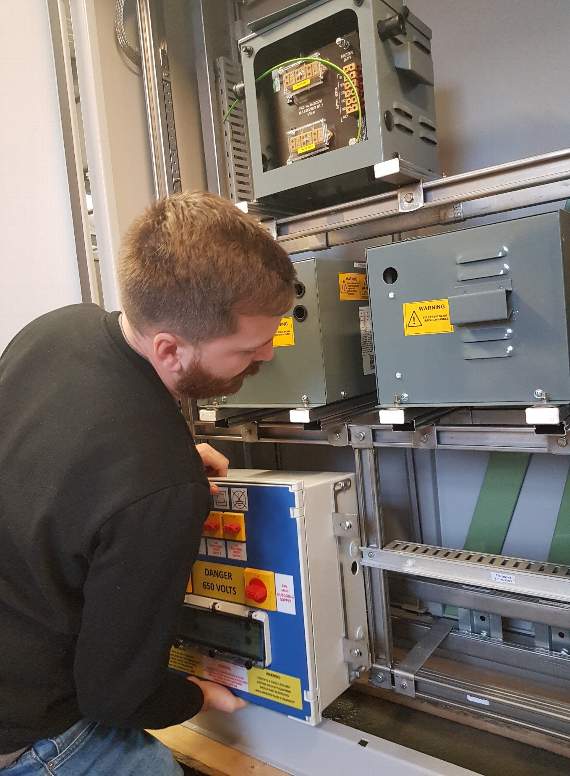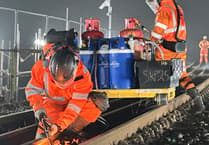A DESIGN and manufacturing company in South East Cornwall that has lost nine tenths of its workforce says that smaller companies are being starved of business by Network Rail.
Rail Signalling & Power (RS&P), based in Saltash, has been providing high quality products and services to the UK rail industry for more than 30 years. With the Government having invested around £40 billion in improving rail infrastructure and £53billion to come over the next four years, businesses such as RS&P should thrive. But its chairman Angus Dent says that Network Rail, a publicly-funded organisation, is failing to spend money efficiently with smaller suppliers.
In a letter to Transport Minister Chris Heaton-Harris and MP Sheryll Murray, Mr Dent says: ’Network Rail, which receives its funding primarily from the UK and Scottish Governments, uses a mechanism of five-year Control Periods (CPs) to commission work from suppliers like RS&P.
’We are currently 15 months into CP6 which is set to run until 2024. Inadequate funding is not the issue. Rather it is the huge problem being created by Network Rail’s failure to spend the money quickly and effectively with tried and tested UK suppliers.
’The previous period, CP5, was a disaster for smaller companies whose only customer is effectively Network Rail. The paucity of contract work has led to RS&P’s workforce being reduced from 70 to seven, losing not only precious jobs in a vulnerable area, but also valuable expertise and technical knowledge which will be difficult, if not impossible, to replace should the volume of work pick up. It would be no exaggeration to say that having suffered from the famine, we would choke at the feast.’
At the start of this year, Network Rail pledged that it was working towards a target, set by the Government, to spend at least a third of its money with Small and Medium Enterprises by 2022.
At the time, it said: ’We recognise the importance of SMEs to Britain’s economy and local communities – they provide about 16 million jobs nationwide.
’The action plan aims to create a more mutually beneficial partnership, with Network Rail benefitting from the business community’s adaptability and innovation.’
But the Railway Industry Association has warned that since the new funding cycle began, Network Rail’s process for making decisions on spending in major rail improvement projects ’provides little visibility of upcoming work’.
The Association says that this goes against the Government’s own advice on procurement, and has the knock-on effect on limiting companies’ ability to plan for work.
Angus Dent of RS&P says that many involved in the rail supply chain have called for a more planned approach to spending.
’Bidding for work is an expensive business and, while we all know that plans sometimes have to change for good reason, it can be particularly galling if invitations to tender are withdrawn after we have already bid,’ he said.
’We are realistic enough to know and accept that we can’t win every contract for which we tender. However, it would be helpful if a reasonable degree of certainty could be injected into the process.’
Mr Dent wants ministers and MPs to bring pressure to bear on Network Rail.
’Companies in the supply chain are withering on the vine waiting for contracts to be awarded while the quality and safety of the rail network is allowed to languish,’ he said.
’RS&P is not an isolated case; rival companies are in a similar position.
’With domestic suppliers disappearing fast, future contracts will doubtless be awarded to overseas suppliers based in countries like China. This is a totally avoidable situation, and it is deplorable and unneccesary, especially at a time when we should be concentrating all our efforts on getting the UK economy back on track.’




